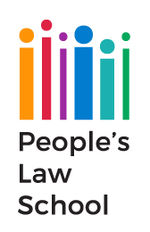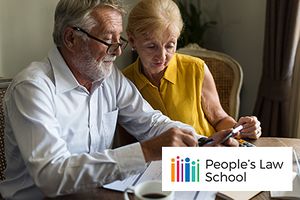About Power of Attorney: Difference between revisions
Drew Jackson (talk | contribs) No edit summary |
Drew Jackson (talk | contribs) No edit summary |
||
| Line 29: | Line 29: | ||
{{PLSPageNav | {{PLSPageNav | ||
|Previous=Glossary for Power of Attorney | |Previous=Glossary for Power of Attorney | ||
|Next= | |Next=no | ||
}} | }} | ||
{{Power of Attorney Navbox}} | {{Power of Attorney Navbox}} | ||
__NOGLOSSARY__ | __NOGLOSSARY__ | ||
Revision as of 22:29, 7 January 2016
This publication from People's Law School tells you how a power of attorney can be used to give someone the legal power to take care of financial and legal matters for you. It explains the types of power of attorney, who can be an attorney, what powers and responsibilities the attorney has, and how to end a power of attorney.
Acknowledgements
Contributors to this edition:
- Content review: Hassan el Masri and Joan Letendre, notaries public practicing in British Columbia
- Writing, editing and layout: Marisa Chandler, Drew Jackson, Gayla Reid, Elena Renderos
This publication was made possible through the financial support of the Law Foundation of BC, the Department of Justice Canada, and the Province of British Columbia.
Copyright
![]() Power of Attorney © People’s Law School is, except for the images, licensed under a Creative Commons Attribution-NonCommercial-ShareAlike 2.5 Canada Licence. This licence lets others share, reuse, remix, and build upon the work non-commercially, as long as they credit the copyright holder and license their new creations under the identical terms.
Power of Attorney © People’s Law School is, except for the images, licensed under a Creative Commons Attribution-NonCommercial-ShareAlike 2.5 Canada Licence. This licence lets others share, reuse, remix, and build upon the work non-commercially, as long as they credit the copyright holder and license their new creations under the identical terms.
About People’s Law School
People’s Law School is a non-profit society in British Columbia, passionate about making the law accessible to everyone. We provide free education and information to help people effectively deal with the legal problems of daily life.

|
|

| ||||||||||||||||||||

